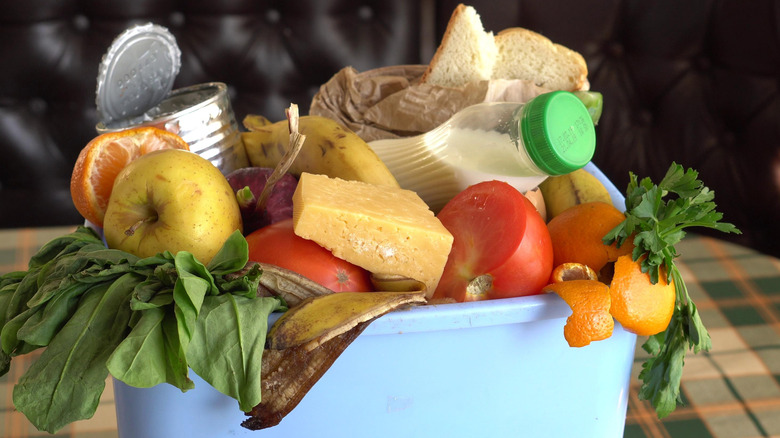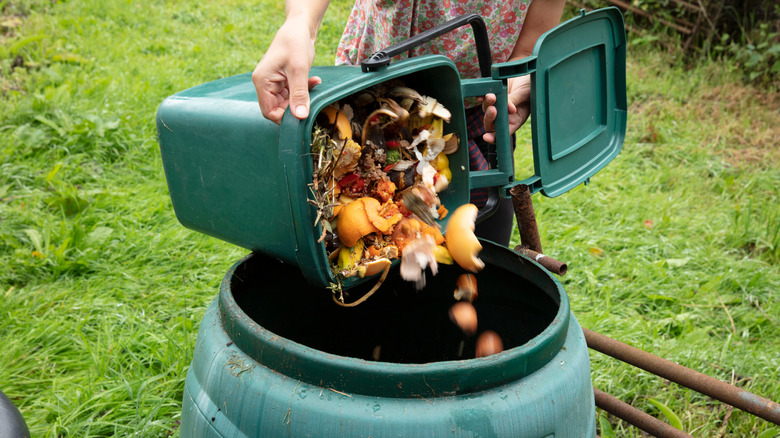Study Reveals The Top Concern For Sustainable Shoppers
Sustainablility is foremost in the minds of many right now, but how grocery shoppers are prioritizing what's most important to them in this regard may be surprising to some. No, it's not single-use plastics, recycling, or over-packaging that is causing the most concern, although according to recent data those things do matter to sustainably minded shoppers.
Based on information from Kroger Co.'s retail data company 84.51°, reducing food waste in shoppers' own kitchens is actually the issue with the highest level of concern, reports Food Business News.
"It isn't so much that a product needs to be sustainable or sustainably sourced," notes Barbara Connors, vice president of commercial insights at 84.51°. "The top concern is actually in the customer's hands, because it involves what they do with a product after they buy it. The biggest thing they want to do is be responsible about buying the right amount of food and working their way through it."
The pandemic might have changed how sustainable shoppers think
The COVID-19 pandemic may be responsible for the shift in priorities and what resonates most with sustainable shoppers. According to Grocery Business, the increased amount of time spent at home during the pandemic, plus the juxtaposition between wasteful panic-buying and strong demand on food banks, led many shoppers to question how they could make better choices.
It makes sense, then, that 45% of shoppers chose food waste as their top priority, according to the 84.51° data. Not surprisingly, pandemic-based food insecurity also seems to have affected the food categories shoppers saw as most concerning in the context of sustainability. Per Food Business News, shelf stable food finished first at 61%, followed by frozen food at 56%.
Of course, the data surrounding the current sustainability priorities of shoppers raises some inevitable questions about the shoppers themselves. Of the shoppers polled, 33% identified as being "extremely concerned" relative to climate change, the 84.51° data showed. Only 21% of shoppers expressed concern with the sustainability of the grocery products they're currently buying.

